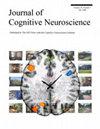威胁会损害围绕动机情境的记忆组织
IF 3.1
3区 医学
Q2 NEUROSCIENCES
引用次数: 0
摘要
以前的工作强调了自上而下的目标在改变记忆组织中的关键作用,即通过研究事件分割和任务转换对自由回忆的下游影响。在此,我们将这些框架扩展到动机领域,通过捕捉自由回忆动态来比较威胁动机如何影响记忆组织。在研究1中,我们通过暴露于遗忘的厌恶声音的威胁来操纵个体成功编码信息的动机。在研究 2 中,我们进行了一项平行研究,通过指令而非威胁来操纵动机,从而考察了与威胁动机直接相关的变化。我们的研究结果表明,无论项目是否与威胁直接相关,避免威胁的动机都能广泛增强对威胁情境下呈现的项目的记忆。与此同时,这些记忆的增强与围绕动机相关特征的记忆组织的减少相吻合。这些结果凸显了在适应性记忆框架内对记忆组织进行概念化时考虑动机价值的重要性。本文章由计算机程序翻译,如有差异,请以英文原文为准。
Threat Impairs the Organization of Memory Around Motivational Context
Previous work highlighted a critical role for top–down goals in shifting memory organization, namely, through studying the downstream influences of event segmentation and task switching on free recall. Here, we extend these frameworks into the realm of motivation, by comparing how threat motivation influences memory organization by capturing free recall dynamics. In Study 1, we manipulated individuals' motivation to successfully encode information by the threat of exposure to aversive sounds for forgetting. In Study 2, we conducted a parallel study manipulating motivation via instruction rather than threat, allowing us to examine changes directly related to threat motivation. Our findings showed that motivation to avoid threat broadly enhances memory for items presented within a threatening context, regardless of whether items were directly associated with the threat or not. Concurrently, these memory enhancements coincide with a decrease in the organization of memory around motivationally relevant features. These results highlight the importance of considering motivational valence when conceptualizing memory organization within adaptive memory frameworks.
求助全文
通过发布文献求助,成功后即可免费获取论文全文。
去求助
来源期刊
CiteScore
5.30
自引率
3.10%
发文量
151
审稿时长
3-8 weeks
期刊介绍:
Journal of Cognitive Neuroscience investigates brain–behavior interaction and promotes lively interchange among the mind sciences.

 求助内容:
求助内容: 应助结果提醒方式:
应助结果提醒方式:


